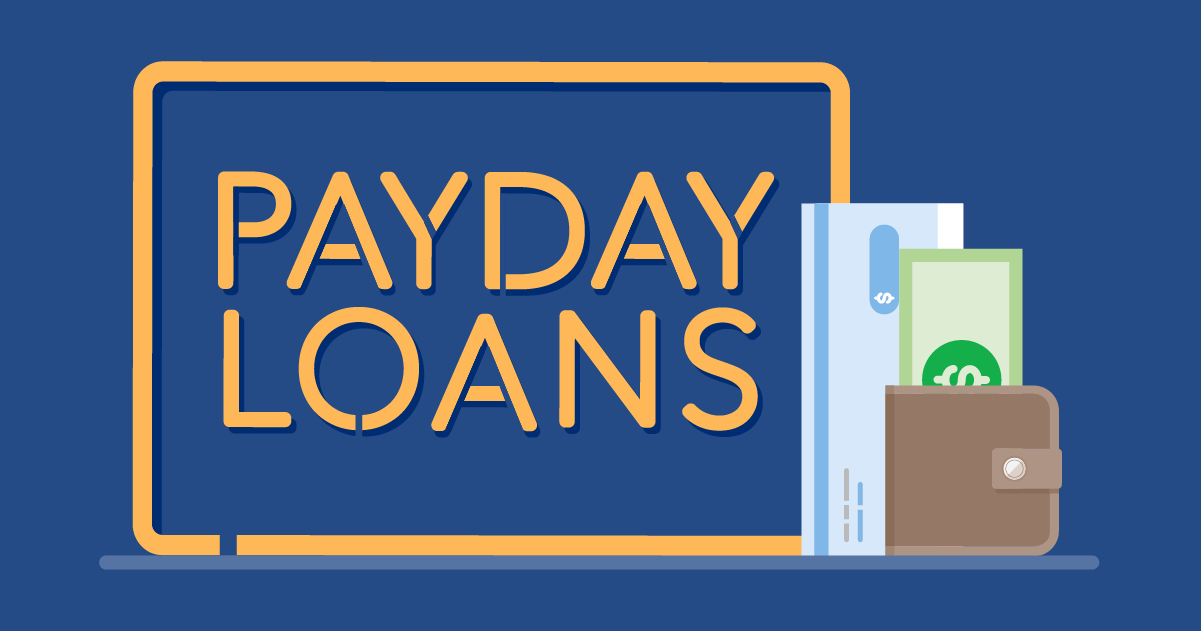Understanding essential facts about Cash Advance Payday Loans for all kinds of financial need
A Comprehensive Guide to Home Loans: Solutions and Options Explained
Charting the globe of home fundings can be intricate. Various options exist, each with distinct functions and effects for possible house owners. Recognizing the differences in between standard and government-backed fundings is crucial. Furthermore, the application process entails precise documentation and pre-approval actions that lots of forget. As consumers begin on their home-buying trip, recognizing just how to manage these obligations properly could imply the distinction between economic stability and hardship. What strategies can encourage them on this course?
Understanding Home Loans: Types and Terminology
Understanding the various types of mortgage and their linked terminology is vital for possible property owners, as it equips them with the understanding required to make educated financial choices. Mortgage can be generally classified into fixed-rate and adjustable-rate home loans. Fixed-rate home loans maintain a consistent rate of interest over the life of the car loan, offering security in regular monthly repayments. Fast Cash. On the other hand, variable-rate mortgages feature rates of interest that may vary after an initial set period, possibly causing lower first settlements however raised future prices
Extra terms is necessary for clearness. Principal refers to the car loan amount borrowed, while rate of interest is the price of borrowing that amount. The term of the loan suggests its period, commonly ranging from 15 to 30 years. Understanding these fundamental principles allows possible buyers to browse the complex landscape of home financing, guaranteeing they pick the best car loan alternative that aligns with their financial scenario and long-lasting objectives.
Standard Car Loans vs. Government-Backed Loans
A substantial difference in home funding exists in between conventional finances and government-backed loans, each catering to different debtor requirements and situations. Traditional loans are not insured or guaranteed by the federal government and generally need greater debt scores and down settlements. They are often appealing to debtors with stable financial backgrounds, as they may offer competitive rate of interest prices and terms.
On the other hand, government-backed finances, such as FHA, VA, and USDA loans, are designed to assist details teams of consumers, consisting of new homebuyers and experts. Installment Loans. These car loans typically include lower deposit requirements and more flexible credit rating criteria, making them accessible to a more comprehensive series of people
Inevitably, the option between conventional and government-backed finances depends upon the debtor's monetary circumstance, long-lasting goals, and eligibility, making it important to very carefully examine both alternatives before making a choice.

The Duty of Rates Of Interest in Home Financing
Rates of interest play an important function in home financing, influencing customers' decisions in between set and variable rate car loans. The option between these choices can substantially influence month-to-month repayments, affecting total price. Understanding exactly how rate of interest rates operate is crucial for anyone maneuvering via the mortgage procedure.
Dealt With vs. Variable Prices
Property buyers face an essential decision when choosing in between fixed and variable rates, as this selection greatly impacts the price of financing with time. Fixed-rate mortgages provide security, locking in a rates of interest for the life of the financing, which can be helpful in an increasing rates of interest atmosphere. This predictability permits house owners to budget extra successfully. Alternatively, variable-rate home mortgages, or variable-rate mortgages (ARMs), normally begin with lower initial prices that can fluctuate based upon market problems. While this may bring about lower first payments, consumers deal with the threat of enhanced rates in the future. Inevitably, the option in between variable and set prices depends on private financial circumstances, threat tolerance, and expectations pertaining to future rate of interest patterns.
Influence On Month-to-month Settlements
When assessing home funding alternatives, the effect of interest rates on regular monthly payments is a crucial factor to contemplate. Rate of interest straight influence the general expense of loaning, affecting just how much a customer will pay monthly. A reduced passion rate cause smaller regular monthly settlements, making homeownership extra affordable. Conversely, greater prices can greatly enhance monthly obligations, possibly stressing a home owner's spending plan. In addition, the lending term plays a vital duty; longer terms may spread repayments out yet can lead to paying even more passion in time. Comprehending exactly how rate of interest engage with loan quantities and terms is crucial for consumers to make educated monetary decisions and choose a mortgage that aligns with their long-lasting monetary goals.
Home Mortgage Brokers vs. Direct Lenders: Which Is Right for You?
When thinking about a home loan, potential customers need to comprehend the distinct duties and obligations of home loan brokers and direct lending institutions. Each choice presents its very own advantages and disadvantages, which can substantially influence the overall cost of funding. An informed selection needs mindful evaluation of these factors to establish the most effective fit for specific demands.
Duties and functions Specified
Navigating the intricacies of home funding calls for a clear understanding of the functions and duties of mortgage brokers and straight lenders. Home loan brokers serve as intermediaries, linking borrowers with loan providers. They analyze a borrower's monetary circumstance, curate lending alternatives, click over here now and guide clients with the application procedure, often leveraging several lender partnerships to secure beneficial terms. Alternatively, direct lenders, such as financial institutions and lending institution, give fundings straight to borrowers. They take care of the whole car loan process, from application to funding, with a focus on their very own items. Each option presents unique methods for acquiring financing, making it necessary for consumers to evaluate their demands and choices when making a decision in between involving a home mortgage broker or collaborating with a straight lending institution.
Cons and pros Comparison
Choosing between a home mortgage broker and a direct loan provider can greatly impact the home financing experience, as each option provides unique advantages and drawbacks. Home mortgage brokers offer as middlemans, giving accessibility to numerous lending institutions and possibly better prices, while streamlining the loan procedure. They may charge fees and rely on commission frameworks that might influence their suggestions. On the other hand, direct Full Report lenders enhance the procedure by providing internal car loans, which can cause faster authorizations and fewer difficulties. On the other hand, they may have a limited option of products and much less versatility regarding rates. Ultimately, the choice hinges on specific preferences, economic circumstances, and the desired degree of assistance throughout the mortgage trip.
Price Ramifications Examined
While examining the cost ramifications of mortgage brokers versus straight loan providers, prospective house owners must think about various aspects that can greatly impact their total costs. Home mortgage brokers generally charge fees for their solutions, which can vary substantially, influencing the overall loan expense. They usually have accessibility to a larger variety of finance items and competitive rates, potentially saving customers cash in the lengthy run. On the other hand, straight loan providers may supply an extra straightforward process with potentially lower ahead of time costs, yet their finance options may be restricted. It is important for house owners to compare rates of interest, charges, and terms from both brokers and loan providers, guaranteeing they make an enlightened decision that aligns with their financial objectives and demands.
The Mortgage Application Refine: What to Anticipate

The home finance application process can commonly feel daunting for several candidates. It generally begins with collecting required paperwork, including proof of revenue, credit report history, and personal recognition. Lenders use this details to evaluate the candidate's financial stability and establish financing qualification.
Next, applicants send a formal application, which may involve loading out on the internet forms or giving information in individual. During this stage, lending institutions assess various aspects, such as debt-to-income proportion and debt rating, to make a decision on funding terms.
When pre-approved, the lending institution will certainly carry out a comprehensive appraisal of the property to identify its value aligns with the funding quantity. This stage may also consist of added background checks.

After last authorizations and problems are satisfied, the car loan is refined, resulting in the closing stage. Understanding each action equips candidates, making the journey smoother and much more convenient as they approach homeownership.
Tips for Handling Your Home Mortgage Responsibly
Effectively steering site here the mortgage application procedure is simply the beginning of an accountable monetary journey. Managing a home lending requires focus to a number of vital techniques. Initially, customers should establish a clear budget that suits regular monthly mortgage repayments, real estate tax, and insurance. Frequently reviewing this budget plan assists stop overspending and guarantees prompt repayments.
In addition, making additional repayments when possible can substantially decrease the car loan principal and total interest paid with time. Debtors should additionally preserve open lines of interaction with their loan provider, especially in times of economic difficulty. This can lead to possible solutions such as lending alterations or re-financing options.
Ultimately, it is suggested to keep an eye on credit report frequently. An excellent credit history can offer chances for much better financing terms in the future. Installment Loans. By adhering to these tips, property owners can navigate their funding obligations properly, assuring lasting economic wellness and security
Regularly Asked Questions
What Are Closing Costs and Exactly How Are They Determined?
Closing expenses include charges connected with settling a home loan, consisting of appraisal, title insurance coverage, and financing origination costs. These prices generally range from 2% to 5% of the finance quantity, differing based upon area and lending institution.
Can I Get a Mortgage With Bad Credit Report?
Yes, individuals with poor credit report can certify for a mortgage, though alternatives may be limited. Lenders typically need higher down repayments or rates of interest, and exploring government-backed financings may boost chances of approval.
What Is Mortgage Insurance policy and When Is It Called for?
Home loan insurance coverage safeguards lenders versus default and is normally required when a consumer makes a down repayment of much less than 20%. It assures that lending institutions recuperate losses if the customer fails to pay off the finance.
Just How Does Refinancing Work and When Should I Consider It?
Refinancing involves changing a present home mortgage with a brand-new one, commonly to protect a lower rates of interest or adjustment funding terms. Property owners need to think about refinancing when rates of interest go down substantially or their monetary situation boosts.
What Takes place if I Miss a Mortgage Repayment?
If a home loan settlement is missed out on, the lending institution usually analyzes late charges, reports the misbehavior to credit scores bureaus, and might initiate foreclosure process if payments remain to be overlooked, at some point threatening the home owner's building.
Fixed-rate mortgages preserve a regular interest rate over the life of the loan, offering stability in regular monthly settlements. A significant distinction in home financing exists in between government-backed car loans and conventional lendings, each catering to various borrower requirements and conditions. In comparison, government-backed financings, such as FHA, VA, and USDA financings, are designed to assist details groups of borrowers, consisting of new property buyers and veterans. Interest rates play an important function in home financing, influencing customers' decisions between fixed and variable price fundings. Fixed-rate home loans provide security, locking in a rate of interest rate for the life of the funding, which can be advantageous in an increasing rate of interest rate atmosphere.